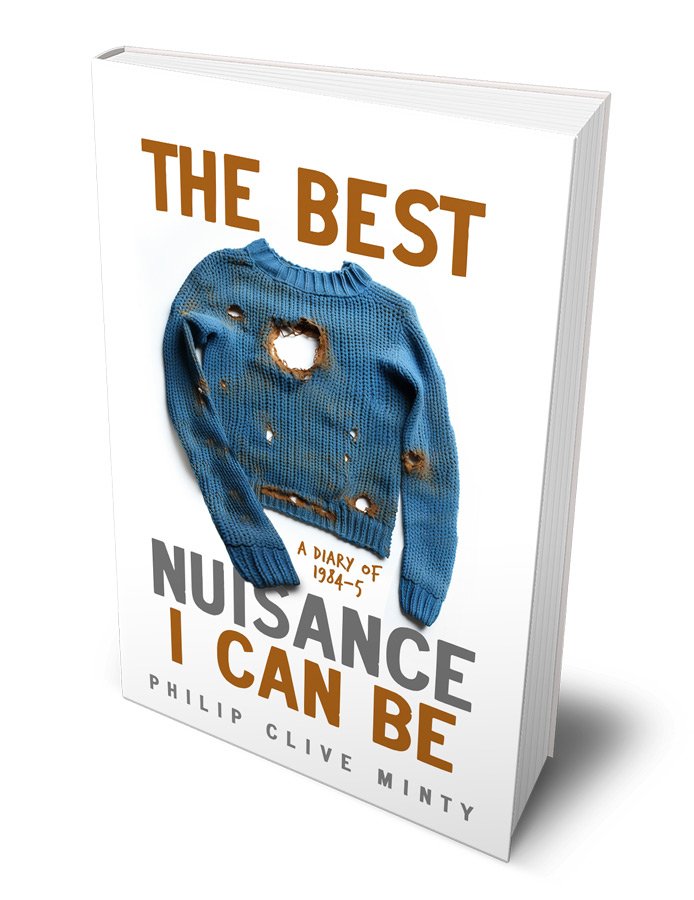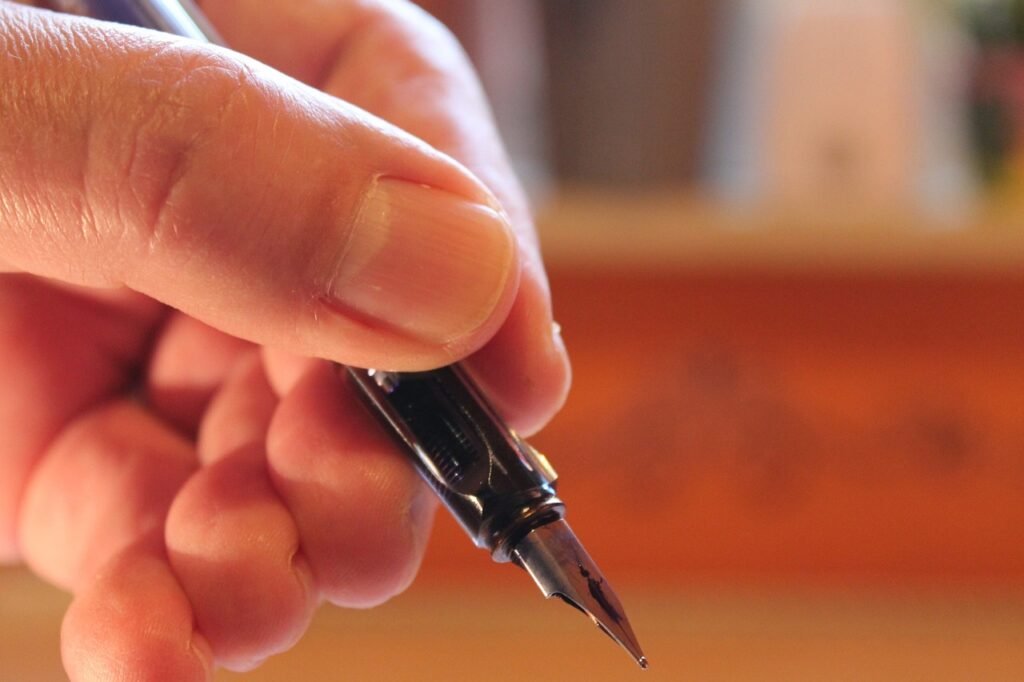The stupid writing habit I’m trying to kick.

If you do any serious writing, chances are that you have at least one stupid habit that damages your creative output. I’ll define a stupid habit as one which you know is counterproductive, but which you persist with anyway. You might, for example, try to write with the TV on, even though you find it distracting. Or maybe you can’t stop your desk tidying and other displacement activities. You get the idea.
Admittedly, this is my conjecture, because I don’t interact with other writers (which you could fix). However, it’s based on the generally sound observation that humans are better at knowing what they’re supposed to do than actually doing it. More to the point, imagining that other writers have stupid habits helps me to feel better about my own. I’m now going to spell this out in detail. My hope is that articulating its foolishness might cure me of it.
I picture people who might hate my work.
There, that’s what I do. At some stage of the writing process, my mind will conjure up images of readers rolling their eyes, furiously typing bad reviews, reading out extracts in mocking voices. I assign these imaginary critics to demographic groups and cloak them in flesh. I see my work through their disdainful eyes.
I think I first started doing this after a bruising encounter with literary giant Fay Weldon, who was not imaginary, and who did hate my work.
I’ll give you an example of how this works. At the time of writing this, the only book I’ve got for sale is my college memoir, The Best Nuisance I Can Be. It’s obvious that it’s not going to be everyone’s cup of tea, but instead of leaving it at that, my brain can’t stop creating personas for those who would hate it, along with their frigging reasons. These include:
Kind and gentle soul, Amy
Kind and gentle Amy, whose text message are filled with heart emojis, had very different formative years to mine. Her friendships did not revolve around physicality and insensitive humour. She did not enter her twenty-first year in a tradition of horseplay, pranks, appalling nicknames, and throwing things at strangers.
Therefore, when Amy encounters all this in Nuisance, she will probably view protagonist Phil as little more than an obnoxious bully. And although one theme is a realisation of the damage that his tomfoolery might be inflicting, Amy will just think it’s all horrible.
No-nonsense Pete
Pete doesn’t devote much time to reading. When he does, he wants it to deliver some action, escapism, and a sense of purpose. He’s a fan of adrenaline-pumping narratives.
He’ll begin Nuisance waiting for something to happen. Phil’s accounts of meeting new students, or descriptions of his room, very much don’t count. At issue is the fact that the book is based on my real college diaries, and therefore includes those real-life periods during which not much happens. Huge swathes of life are taken up with low-key activities like eating, watching shit telly, mundane admin, chewing the cud with friends. Whole weeks pass by that you won’t remember a year from now.
Life mostly happens while we’re waiting for life to begin, in the footage edited from our highlight reels. But when he reads, Pete wants to escape from that, as quickly as possible. He’ll never get to the small-scale dramas in Nuisance, because he’ll have given up by page 20. Next!
23-Year-Old Hannah
I recently met a real-life 23-year-old Hannah in the gym. She’s friendly, engaging and a really smart cookie. Naturally, I pictured how much she’d hate my book.
For one thing, she’d be confronted by legions of 40-year-old references: payphones, the Heisel Stadium Disaster, Geoff Capes, Band Aid, Catherine Bach, the miners’ strikes, video recorders, Frank Bough, and so on. And that’s before we get to films, TV programmes and bands.
But the bigger potential problem is that, like all 23-year-olds, Hannah is a cultural absolutist. In our twenties, we are freshly imprinted with the cultural rules of our time, and these feel natural and intuitively correct. At 23, you felt that the cultural rules of older generations were wrong, and out-of-date. That’s what she thinks too.
So, what happens when Hannah encounters Nuisance’s 1980s cultural values? What is her reaction to our Philip referring to plus-sized people as Fatty, or to Wendy calling him a spaz, or when gay is routinely employed as a pejorative? One star on Amazon reviews, that’s what, and she won’t speak to me in the gym anymore.
Battling my stupid habit.
That really is a stupid habit, don’t you think? Pointless, morose, and confidence-sapping. And founded on such simple-minded stereotypes, that don’t give anyone any credit!
Worse than this, it inculcates cowardice. By focusing on what people might hate, I risk becoming the equivalent of Breakfast TV: vapid, anodyne and gutless.
Anyway, what I’ve come up with to battle against it is to run through a thought experiment. It goes like this:
Imagine that your latest book was widely viewed as a work of unparalleled genius, and was advertised to every person on the planet. Despite its brilliance, there is zero doubt that hundreds of millions of people would actively hate it. Literally billions more would have no interest in it. This is an inevitable consequence of the size of the global population and the diversity of its cultures and individuals.
On a smaller scale, imagine you put your book on Amazon, and 30 million people viewed the blurb and looked inside. If that resulted in 6 million sales, you would be feted across the world as a literary phenomenon. And if that did happen, that would leave 24 million people – the population of a small country – that wouldn’t even drop a few quid on a copy.
There is no such thing as a universally loved book. Fans of the biggest barnstorming novel will always be outnumbered by those who outright detested it and those who couldn’t give a monkey’s either way.
Nobody pans to find pebbles. Try looking for gold.
This is my mantra to face down my self-destructive nihilism. I’ll keep you posted on how it goes.
So, what’s your worst writing habit?
Hopefully, your worst writing habit is something less vague and existential than mine. What have you got? Let me know below.

